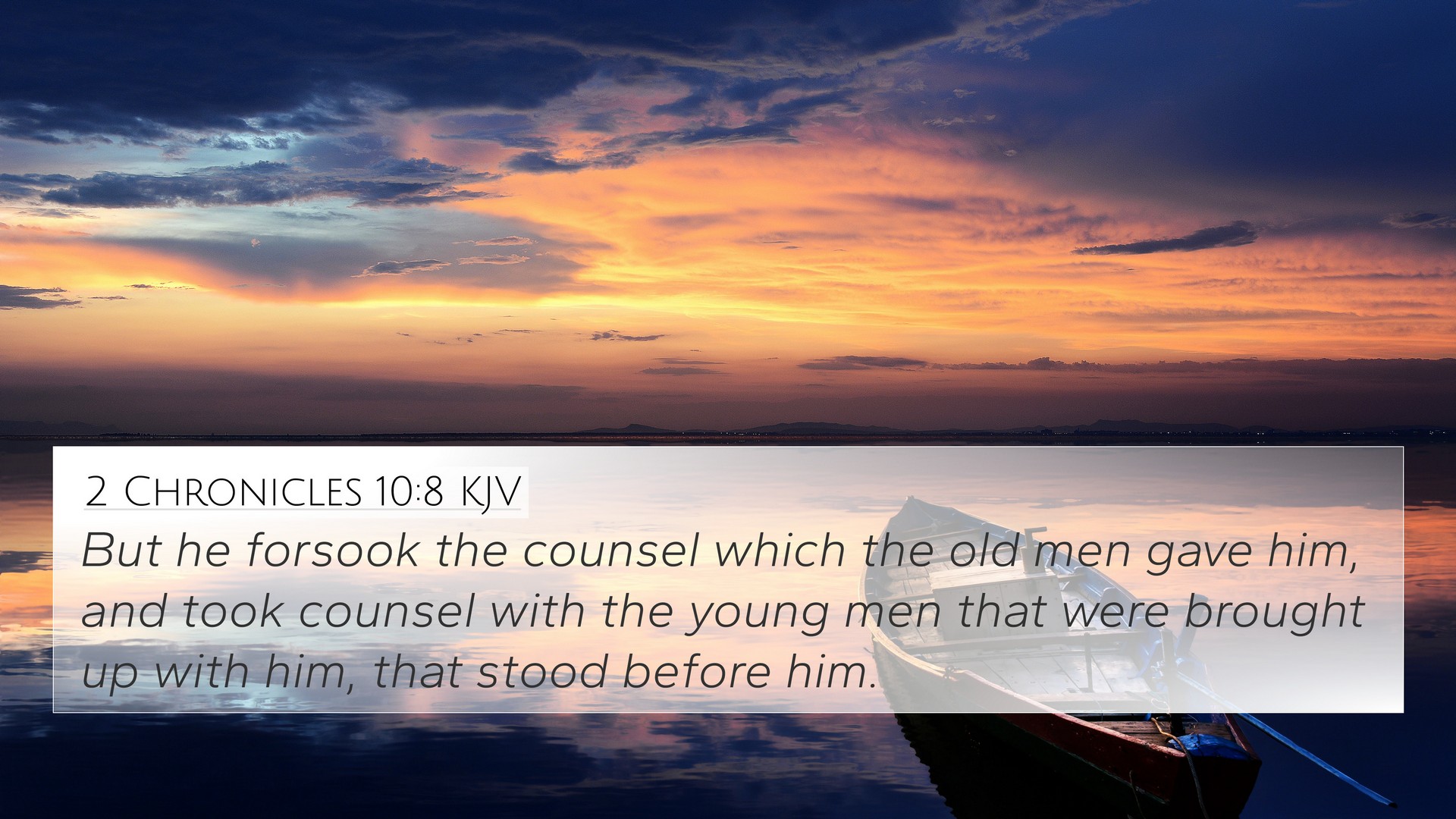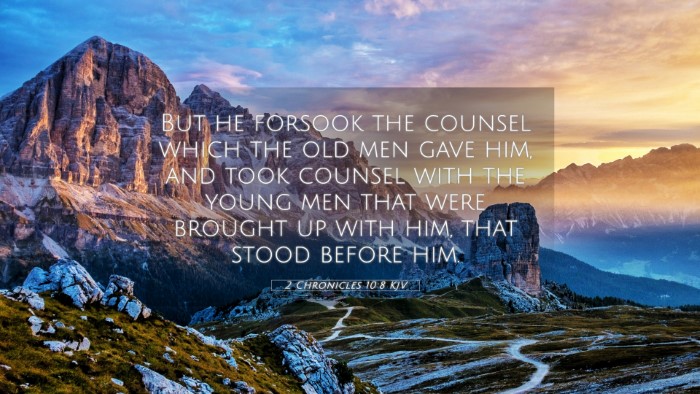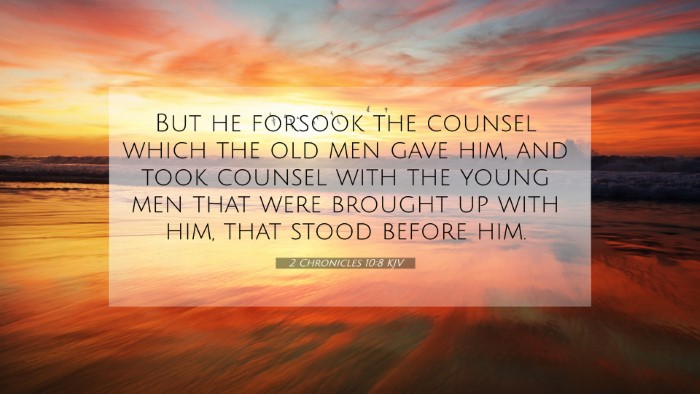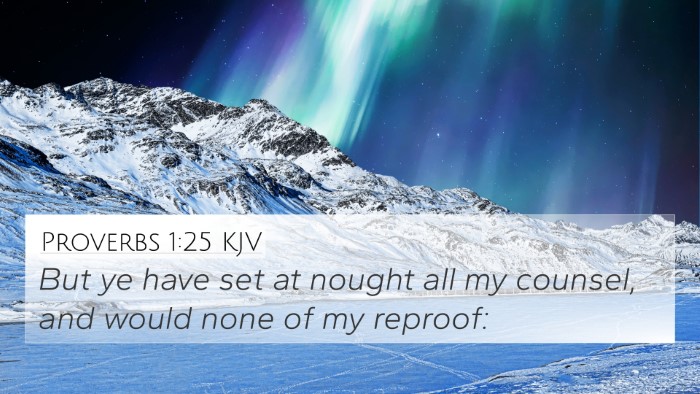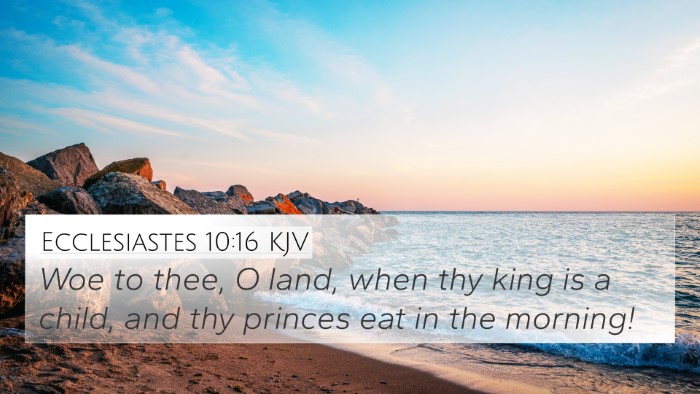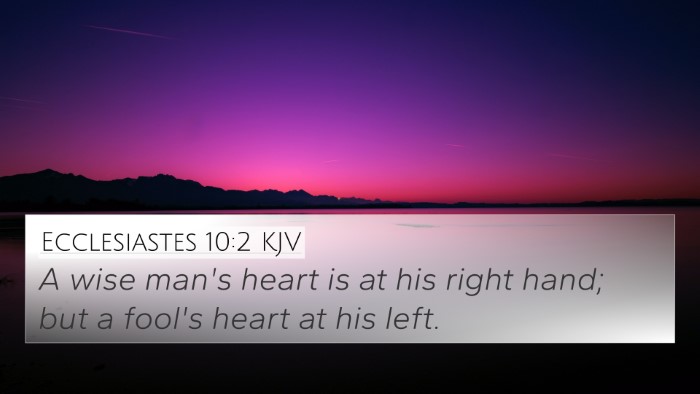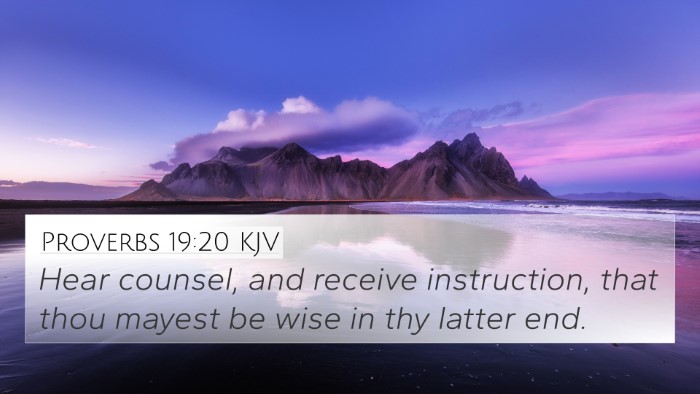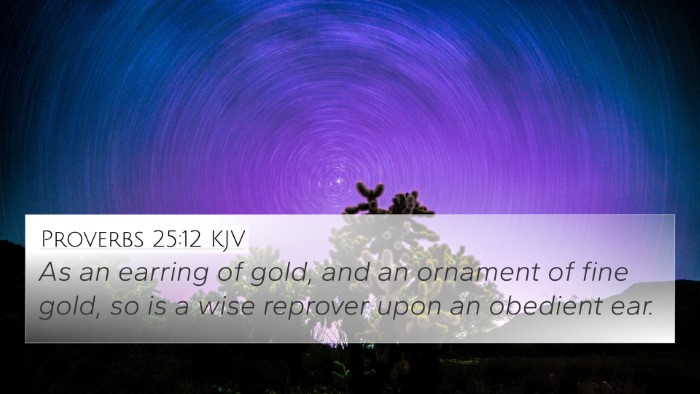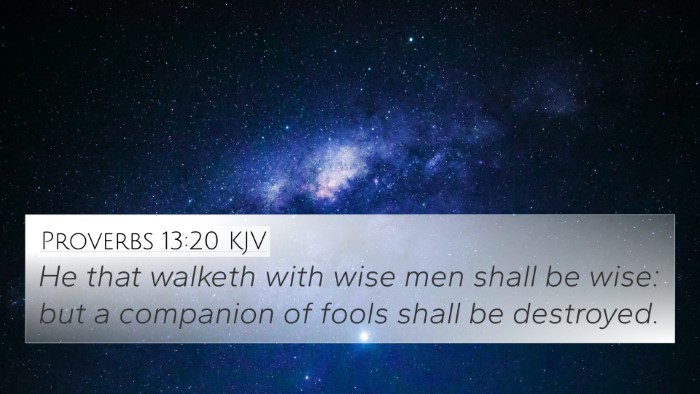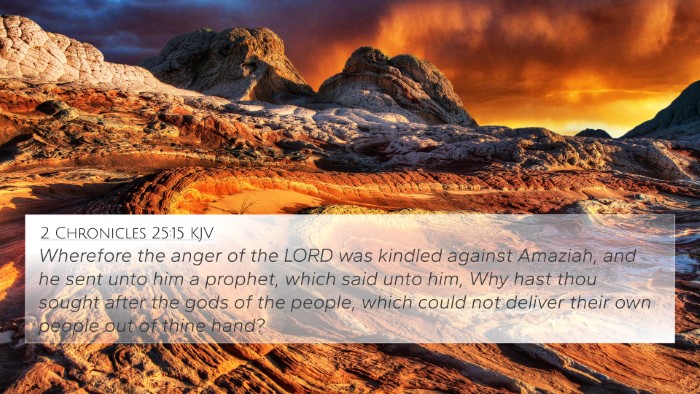Understanding 2 Chronicles 10:8
Verse: “But he forsook the counsel which the old men gave him, and took counsel with the young men that were brought up with him, that stood before him.”
Summary of the Verse
In 2 Chronicles 10:8, King Rehoboam chooses to ignore the wise counsel of his elders and instead follows the advice of his peers. This decision plays a crucial role in shaping the future of Israel, leading to a significant division in the kingdom.
Commentary Insights
Matthew Henry’s Commentary
Matthew Henry emphasizes the folly of Rehoboam’s decision to prioritize the advice of his contemporaries over the wisdom of the older generation. He notes that the young men’s counsel was driven by a desire for power and pleasing the populace, rather than seeking righteousness or wisdom. Henry suggests that this choice reflects a common tendency of youth to reject the guidance of experience.
Albert Barnes’ Notes
Albert Barnes highlights the significance of counsel in leadership. He points out that Rehoboam's turning away from the wise advice of the older men represents a broader theme within the scriptures regarding the importance of discernment in decision-making. Barnes also suggests that Rehoboam's choice leads to dire consequences not only for himself but also for the nation of Israel, emphasizing the weight of a leader's decisions on their people.
Adam Clarke’s Commentary
Adam Clarke reflects on the context of Rehoboam’s dilemma. He provides a historical background that illustrates the unity of the kingdom under Solomon and how Rehoboam's lack of wisdom resulted in its fragmentation. Clarke also notes that the youth’s counsel was foolish and shortsighted, pointing out that the arrogance of youth can often overlook the lessons learned through history.
Thematic Connections and Cross-References
2 Chronicles 10:8 can be understood better through its connections with several other biblical passages. Here are notable cross-references:
- Proverbs 19:20 - "Hear counsel, and receive instruction, that thou mayest be wise in thy latter end." This verse underscores the value of heeding wise counsel.
- 1 Kings 12:8 - A parallel text where Rehoboam's choice is elaborated upon, highlighting the same themes of wisdom versus foolishness.
- Proverbs 11:14 - "Where no counsel is, the people fall: but in the multitude of counselors there is safety." This showcases the necessity of wise advisors.
- Proverbs 24:6 - "For by wise counsel thou shalt make thy war: and in multitude of counselors there is safety." This speaks to the wisdom required for leadership.
- James 1:5 - "If any of you lack wisdom, let him ask of God, that giveth to all men liberally, and upbraideth not; and it shall be given him." It emphasizes seeking divine wisdom.
- Exodus 18:21-24 - Jethro's counsel to Moses about leadership and delegation illustrates the importance of wise counsel in governance.
- Isaiah 28:29 - "This also cometh forth from the Lord of hosts, which is wonderful in counsel, and excellent in working." This verse highlights God's provision of wisdom.
- Isaiah 30:1 - "Woe to the rebellious children, saith the Lord, that take counsel, but not of me." This warns against seeking counsel that is not rooted in God's wisdom.
- 1 Corinthians 3:19 - "For the wisdom of this world is foolishness with God." This stresses the theme of contrasting worldly wisdom with divine guidance.
- Colossians 2:3 - "In whom are hid all the treasures of wisdom and knowledge." This affirms that true wisdom lies in Christ.
Applications and Lessons
Rehoboam's choice serves as a cautionary tale about the importance of wise counsel and the potential pitfalls of ignoring experienced perspectives. Leaders today can learn from this example that:
- Engaging with diverse voices, especially those of experience, can provide insight that is invaluable.
- Wisdom often comes from humility—recognizing that one does not have all the answers.
- Decisions made in favor of popularity rather than wisdom can have long-lasting negative consequences.
- Consulting God in moments of decision is vital for obtaining true wisdom that leads to peace and unity.
Conclusion
2 Chronicles 10:8 serves as both a warning and a guide for making decisions. It reflects the vital importance of seeking Godly counsel and the weighty responsibility leaders hold in guiding their people. By examining connections to other scripture, we see a theme that transcends the historical context, providing timeless wisdom for today’s readers.
